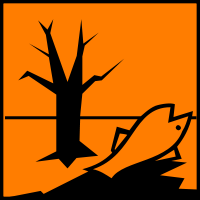I have used safety railing pipe fittings to make hanger racks in the past and had lots of 1 inch sch 40 pipe left over, so i decided to keep with the theme and make some shelves with it too.
So I researched it a bit online and found many examples of shelves made this way, and eventually decided on keeping it simple. I based my design on this zero point shelf Instructable I found at http://www.instructables.com/id/Zero-Point-Shelf/
This is how the shelves ended up looking
And now for the build details:
All the fittings are Kee or Hollaender, the wood boards are 2"x12"x6' klin dried Douglas Fir, and the tubing is 1 inch sch 40 galvanized pipe
I am using a self feeding 1 3/8" bit for drilling the holes where the pipe will go though, this self fed bit ate through the wood a lot quicker than I expected for a hole of this size.
I suggest you use a drill with a secondary handle, which is what i used, as sometimes when the bit hits a particularly tough spot like a knot, the drill will want to twist out of your hands.
After I drilled through the first board, I used it as a drilling guide for every other board. I clamped the board to be drilled under the one I am using as a template.
Be sure to clear the chips out of the hole regularly or it gets hard to pull the bit back out.
I found out that a 1-3/8" hole does not have much clearance around a 1 inch sch 40 pipe. Even if the hole was a little off, the pipe would not fit through all the planks at the same time. Re-drilling all the holes without a center would have been tough, so here I am making a reamer that can be used to align all the drilled holes. I am making the reamer out of a scrap piece of tubing.
Technically just using the pointed end of the pipe after this cut might have been enough.
I clamped the pipe in the vise before I hit it with a angle grinder to sharpen the point and saw a tooth into it.
This is how it looks like in its finished state, sadly I forgot to take a picture of me actually using the reamer to align all the holes. But the basic principle is to clamp all the planks together with the holes closely aligned, then twist your way down by turning the reamer and allowing that one tooth to cut away all the wood in the way.
For the Kee Klamps you need to cut out a flange on the inside of this fitting so that the tubing can go through. I used a 1-3/8" hole saw for this purpose and I did not need to do any more work to the fitting after the hole was cut.
This is what it looks like after the hole saw has done its job.
This is the Hollaender fitting which does not need any work done to it for this shelving project. Another advantage of the Hollaender fitting is that it fits a lot more snug to the pipe than the Kee ones
One disadvantage of the Hollaender fitting in this case is that there are only 3 screw holes as can be seen here, the base flange is also a bit smaller.
Size comparison with the Kee one on the bottom
After all the fittings are ready and shelf holes align reamed, its time to start the assembly. Here is the stand for the base. I have it offset so that it would be less likely for the shelf to tip away from the wall.
Kee on the center and Hollaender on the sides, the side ones I am using as feet for this shelf.
I inserted a short length of tube to check the alignment of each board.
Everything is now moved indoors and I am ready to screw the fitting on to the shelf planks.
This is how I made sure all the fittings would line up. I temporarily mounted each board to the base and screwed the flange into the wood.
All the shelves lined up ready for final assembly, you can see the difference in color between the Kee and Hollaender fittings here. I think Kee zinc dip galvanizes their cast iron fittings and Hollaender is cast from some kind of light shiny alloy.



















